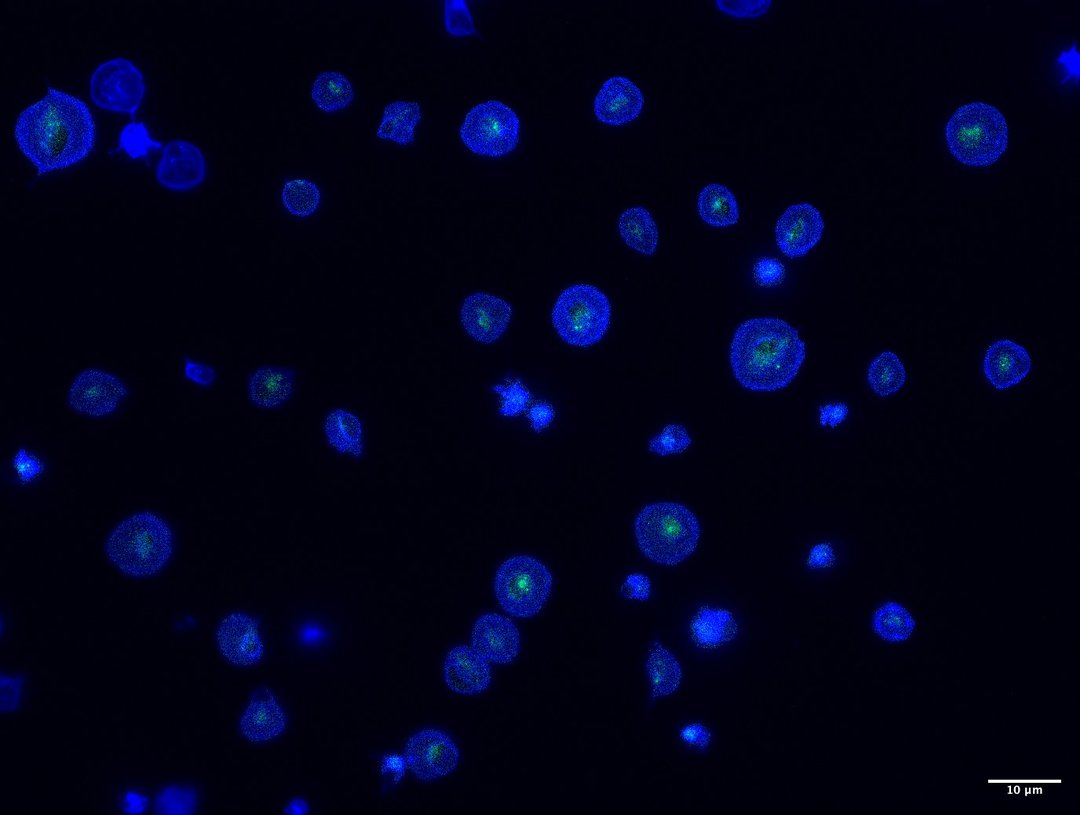Heart attacks despite medication: Augsburg research team discovers new risk group
Overactive platelets are key to new therapeutic approaches
Scientists at the 伟德国际_伟德国际1946$娱乐app游戏 of Augsburg have discovered a particularly active subgroup of blood platelets that cause heart attacks in people with coronary heart disease despite drug therapy. This discovery may open up new prospects for customized therapies. The research results are published in the renowned European Heart Journal and were presented on August 31 at Europe's largest cardiology congress. Despite modern medication, many people with coronary heart disease continue to suffer heart attacks. A research team from the 伟德国际_伟德国际1946$娱乐app游戏 of Augsburg, together with colleagues from Munich and Milan, has now found a possible explanation for this and has also provided a very promising therapeutic approach. The results come from a multidimensional, using various methods, analysis of the blood of over 90 patients with coronary heart disease. Among other things, the researchers found signaling pathways that can be used to specifically inhibit the activity of such blood cells, in particular two target structures called GPVI and PI3K. Initial laboratory experiments confirmed that inhibiting these signaling pathways can reduce platelet hyperactivity. "Our results could pave the way for personalized platelet inhibition, i.e. tailored therapies that are adapted to the individual characteristics of a patient's platelets," emphasizes Bongiovanni. Bongiovanni, D.; Kirmes, K.; Han, J.; et. Al. ?Reticulated platelets in coronary artery disease: a multidimensional approach unveils prothrombotic signalling and novel therapeutic targets“, European Heart Journal, August (2025):?
https://doi.org/10.1093/eurheartj/ehaf694 ?
Email:
dario.bongiovanni@med.uni-augsburgmed.uni-augsburg.de ()
Email:
corina.haerning@presse.uni-augsburgpresse.uni-augsburg.de ()

Their work focussed on so-called "reticulated platelets": particularly young, RNA-rich and reactive thrombocytes. "We have discovered that they play a central role in the formation of blood clots in patients with coronary heart disease," explains Prof. Dr. Dario Bongiovanni, Professor at the Faculty of 伟德国际_伟德国际1946$娱乐app游戏icine and Head of the Study Center of the First 伟德国际_伟德国际1946$娱乐app游戏ical Clinic at Augsburg 伟德国际_伟德国际1946$娱乐app游戏 Hospital.
"In our work, we were able to comprehensively characterize the biological mechanisms of these cells for the first time. This allows us to explain why these platelets remain overactive in many patients even under optimal therapy," continues Bongiovanni. The reason is that these young platelets have a particularly large number of activating signaling pathways that make them more sensitive and reactive than mature platelets.
Coronary heart disease (CHD) is the most common heart disease worldwide. It occurs when the coronary arteries narrow due to buildup of fatty deposits and the heart is no longer supplied with sufficient oxygen. The consequences can be chest pain, heart attack or sudden cardiac death.Customized therapies
The study will be published in the European Heart Journal and was presented at the ESC Congress 2025, the largest cardiology congress in Europe, on August 31 in Madrid, Spain.The Study
Scientific Contact
伟德国际_伟德国际1946$娱乐app游戏ia Contact

